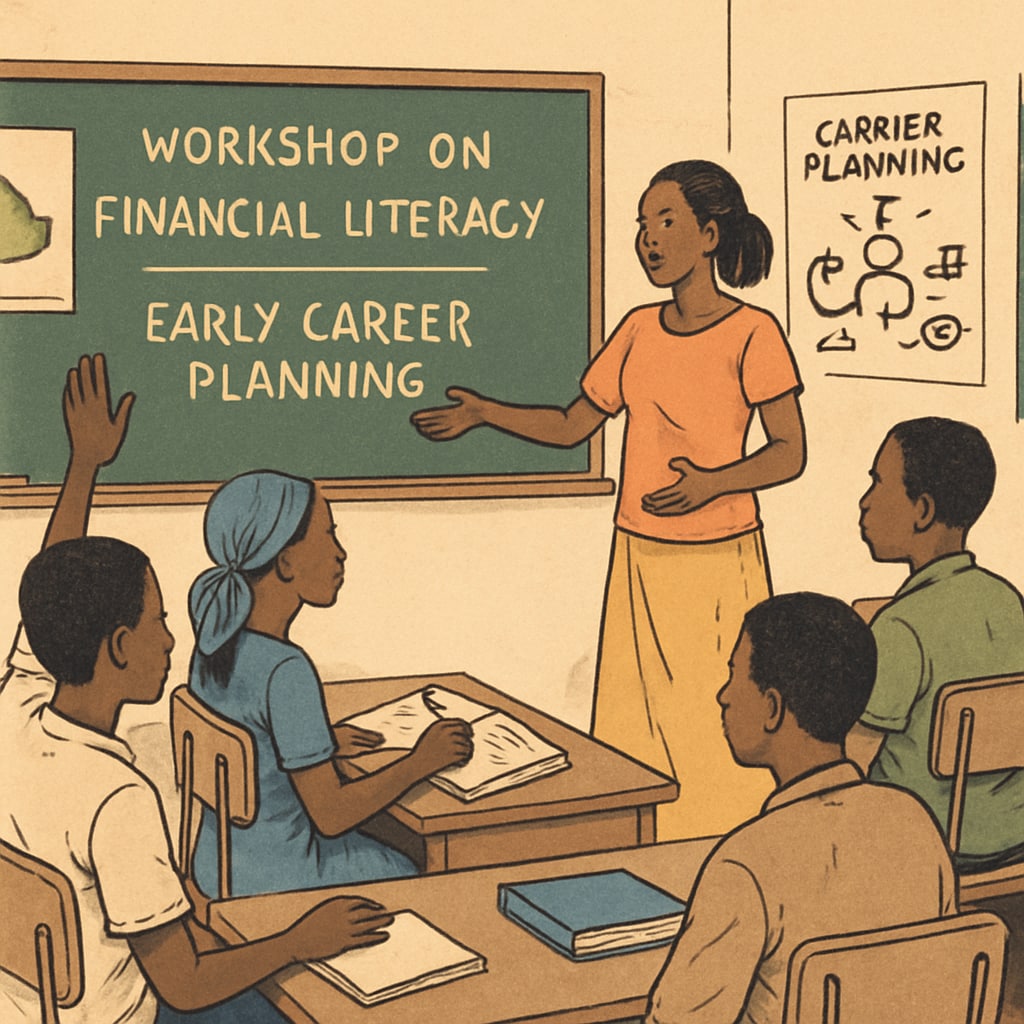In developing countries such as Mali, students pursuing careers in the financial sector often face significant challenges. From uneven education quality to limited access to resources, these obstacles hinder their ability to make informed career choices and prepare for future opportunities like study abroad programs. By introducing career planning into the K12 education system early, these issues can be mitigated, empowering students to navigate their career paths with confidence.
Empowering Career Planning Through Early K12 Integration
In Mali, as in many developing countries, the educational landscape faces systemic challenges. The financial sector, a promising career path for many, requires specialized skills and knowledge that are often unattainable due to limited educational resources. Early integration of career planning in K12 education can address these gaps by providing students with vocational exposure, financial literacy, and an understanding of global opportunities such as study abroad programs.
For example, career planning modules embedded in primary and secondary education can introduce concepts like budgeting, investment basics, and the importance of higher education. These programs can inspire students, particularly those interested in the financial industry, to pursue further education abroad, where they can gain advanced skills and knowledge.

Challenges Faced by Mali’s Financial Sector Students
Students in Mali aiming for careers in finance encounter several barriers. First, the unequal distribution of educational resources creates stark disparities between urban and rural areas. Second, access to career counseling is minimal, leaving students unaware of potential career paths or study abroad options. Finally, the lack of vocational training programs limits students’ practical understanding of the financial industry.
To address these challenges, policymakers and educators must prioritize investment in K12 education systems. For instance, partnerships with international organizations can provide funding for teacher training, curriculum development, and technological tools that enhance learning experiences.

Study Abroad and the Role of Global Exposure
For students in developing countries like Mali, studying abroad can be a transformative experience. Exposure to diverse perspectives, advanced educational frameworks, and global networking opportunities equips students with the tools needed to succeed in competitive industries like finance. However, without adequate preparation during K12 education, many students remain unaware of how to access these opportunities.
Integrating study abroad preparation into K12 education can help. Schools can provide workshops on scholarship applications, language proficiency tests, and cultural adaptation. Additionally, partnerships with universities abroad can facilitate exchange programs, enabling students to experience foreign education systems firsthand.
For more insights into vocational education strategies, visit Vocational Education on Britannica. To learn about Mali’s educational landscape, explore Education in Mali on Wikipedia.
Conclusion: Building Foundations for Future Success
Career planning in developing countries like Mali requires a proactive approach that starts in the K12 education system. By addressing resource disparities, providing vocational training, and preparing students for study abroad opportunities, policymakers and educators can empower future generations to thrive in competitive industries like finance.
As a result, students can make informed decisions about their career paths, whether they choose to study locally or pursue education abroad. The integration of career planning into early education truly represents the first step toward a brighter future for aspiring professionals in Mali’s financial sector.
Readability guidance: This article uses short paragraphs and lists to summarize key points. Passive voice is minimized, and transitional words ensure smooth readability. Images are placed strategically to enhance visual engagement.


